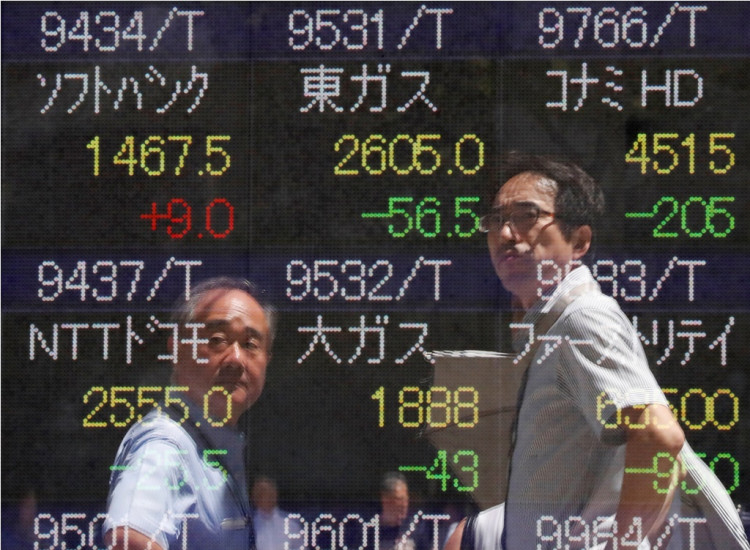Most Asian stocks bounced back on Friday's early trading session as the Japan-South Korea trade war was re-escalated and investors wait for U.S. Federal Reserve Chairman Jerome Powell's statements.
According to CNBC, the Shenzhen component gained 0.13 percent, the Shanghai composite advanced by 0.21 percent, Hong Kong's Hang Seng index gained 0.14 percent, and Japan's Nikkei saw a hike of 0.32 percent.
As expected, South Korean defense shares also jumped in response to their government's hard-line stance against Japan. Firstec stocks gained one percent, while Victek soared by 2.38 percent.
Other Asian stocks did not perform too well as the SoKor Kospi shed 0.15 percent, the Shenzhen composite dropped 0.21 percent, and the Korean won weakened further against the U.S. dollar.
The Asian markets' reaction to South Korea's Thursday announcement was somehow expected by some analysts. Seoul said it was putting an end to an information exchange agreement that it signed with Tokyo in the past.
The two sides have already been throwing shade at the other over the past months. When the Japan-South Korea trade war kicked off earlier this year, economists warned that the impact will spread throughout Asia-Pacific markets.
So far, Asian stocks have been showing mixed reactions to the dispute over the past weeks. However, some analysts are worried about the Korean won as it continues to weaken amid re-escalations.
Aside from the Japan-SoKor trade war, the rebound in most Asian stocks on Friday morning came as the world awaits Powell's speech for the annual central banking symposium later in the day.
Many economic experts have expressed fears over the U.S. economy potentially heading towards a recession as the country's own trade war with China unravels.
According to Reuters, investors are expecting the Fed to cut rates on bigger volumes as the economy grapples with the realities of trade tensions. Some experts pointed out, though that the Fed has not been very clear with its stand on the economic uncertainties the U.S. is currently in.
U.S. President Donald Trump has also been firm in his position that the economy is doing fine. His statements may be supported by data showing employment is doing good., However, factory output slowed down over the last few months, indicating early strains in the economy.
Economists and investors alike are watching Powell's speech closely. For some, the speech is a test of his grit as the Fed chairman as he continues to feel pressure from the White House and investors want him to have good news prepared.
Former Treasury Department official and chief economist at PGIM Fixed Income, Nathan Sheets, noted that Powell "has to be careful" in whatever he says later on Friday. His statements could either make or break fears about a U.S. slowdown.






